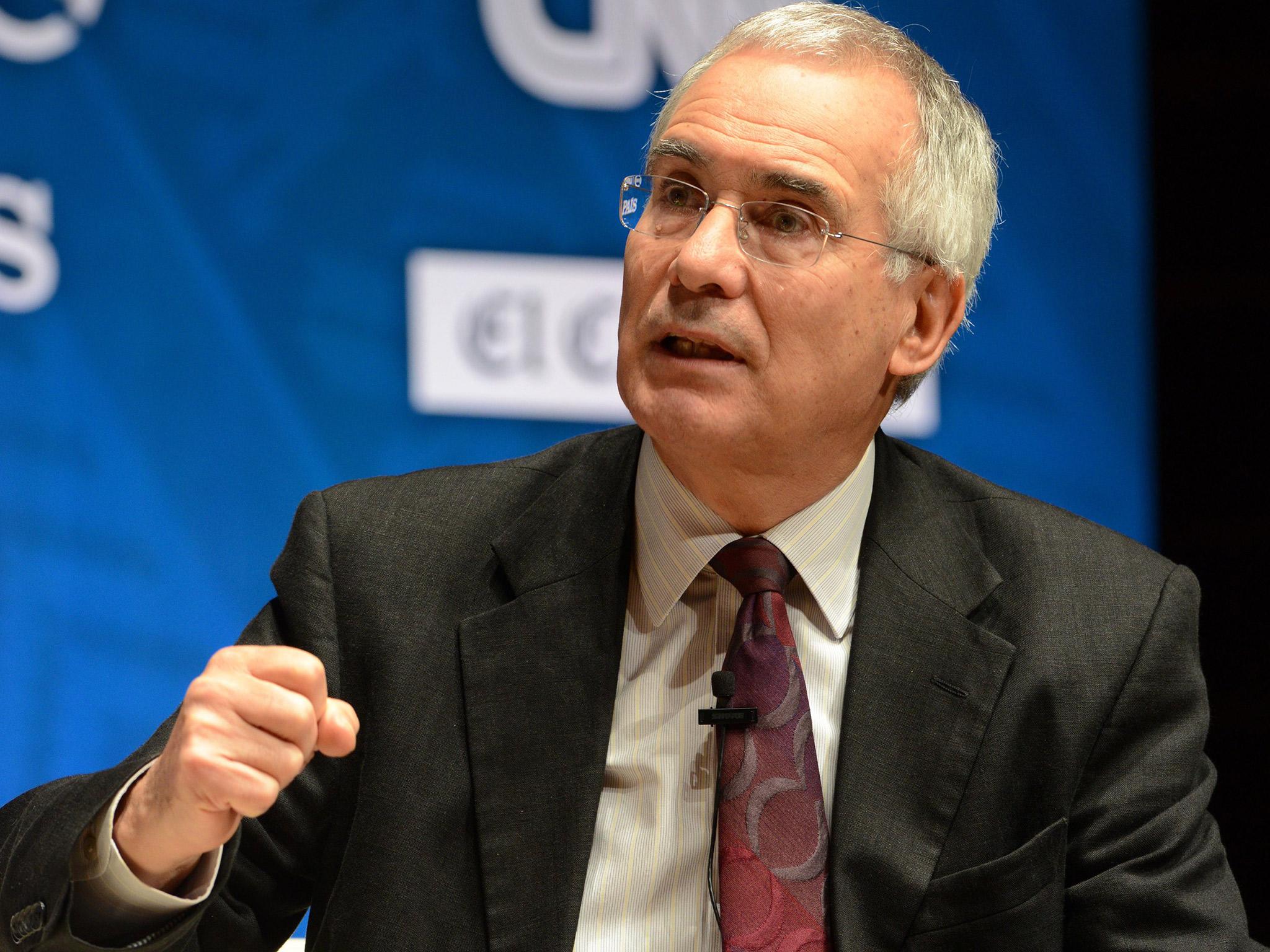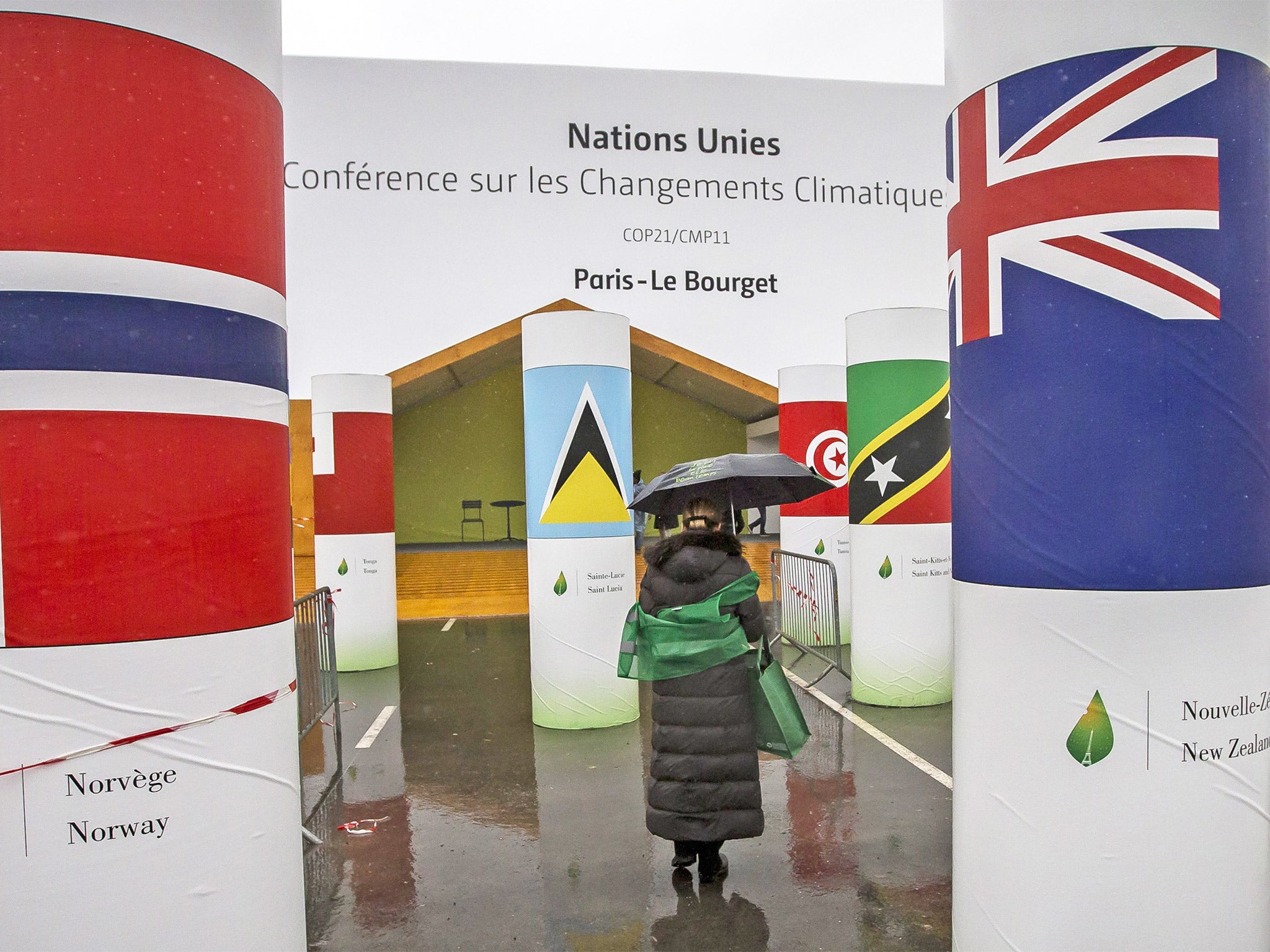Paris climate change talks: Lord Stern calls on rich countries to help poor nations cope with global warming
Exclusive: Lord Stern warns talks will hinge on equality as poorer countries cannot be left to bear the brunt of costs

Your support helps us to tell the story
From reproductive rights to climate change to Big Tech, The Independent is on the ground when the story is developing. Whether it's investigating the financials of Elon Musk's pro-Trump PAC or producing our latest documentary, 'The A Word', which shines a light on the American women fighting for reproductive rights, we know how important it is to parse out the facts from the messaging.
At such a critical moment in US history, we need reporters on the ground. Your donation allows us to keep sending journalists to speak to both sides of the story.
The Independent is trusted by Americans across the entire political spectrum. And unlike many other quality news outlets, we choose not to lock Americans out of our reporting and analysis with paywalls. We believe quality journalism should be available to everyone, paid for by those who can afford it.
Your support makes all the difference.Lord Stern, the world’s most authoritative climate economist, is calling on rich countries to do everything they can to help poorer nations weather the storm of global warming – warning that a failure would escalate poverty, migration and conflict.
In an interview with The Independent ahead of the United Nations climate change summit in Paris, Lord Stern said the conference represented a crucial opportunity to reduce the huge inequality at the heart of global warming.
The huge resentment among poor countries over how they are suffering could potentially scupper a global agreement to tackle it, he explained.
“Equality is a big issue. The rich got rich on high-carbon growth and it’s the poor people of the world – whether they be poor people in rich countries or poor people in poor countries – who suffer earliest and most,” Lord Stein said.

The negotiations in Paris will largely concentrate on how much money the rich nations pay to the poorer ones to help them adapt to the effects of global warming – such as increased hurricanes and droughts – and to help finance the transition from fossil fuels to green energy.
The issue is fraught as developed nations with financial problems of their own baulk at channelling hundreds of billions of pounds into developing countries – which, in turn, worry that the amounts involved, though huge, are not nearly enough.
Lord Stern was speaking as new research underlined how extraordinarily expensive global warming will be for developing countries – and how much less it would cost if the world redoubled its efforts to curb it. The report, commissioned by Oxfam, found that global warming is on course to cost developing countries $2.5 trillion dollars (£1.65 trillion) a year by 2050.
The costs relate to the huge price of adapting infrastructure to deal with a warming planet and the losses this will inflict on developing economies, for anything from extreme weather damage to disease and lost agricultural production.
The report, carried out by research group Climate Analytics, factors in recent pledges made by more than 160 countries regarding 2030 targets to reduce carbon emissions – which experts estimate will limit global warming to be-tween 2.7C and 3C. But the UN has set a target of 2C because anything beyond that becomes increasingly devastating.
The Oxfam report finds that the cost to the developing world of dealing with 2C warming is huge. The extra 1C increases their cost of adaptation by about $270bn a year by 2050 and deals a further $600bn of annual economic losses.
“We are seeing encouraging progress towards a climate deal but settling for what we have so far would spell disaster for the world’s poorest people,” said Oxfam GB’s chief executive, Mark Goldring. “One degree’s difference might seem negligible but it’s a multi-billion dollar nightmare for the world’s poorest countries.”
World Bank Group president Jim Yong Kim said parts of Africa were among those areas most in need of financial help. “Sub-Saharan Africa is highly vulnerable to climate shocks that could have far-ranging impact on everything from child stunting and malaria to food price increases,” he said.
Children are disproportionately at risk from global warming, with more than half a billion living in areas of high flood risk and 160 million in drought-prone regions, according to Unicef, the children’s charity. “The sheer numbers underline the urgency of acting now,” said Unicef executive director Anthony Lake.
Lord Stern urged world leaders to tackle these global warming inequalities at the UN conference, which begins on November 30.
“[Paris] is in large measure about showing the rich world is serious about its promises. It is important. It’s got to show that it’s on the way [to providing $100bn of finance a year by 2020] and that it is likely to continue to be on the way,” Lord Stern said.
“The defining challenges of this century are overcoming poverty and managing climate change: if we fail on one we fail on the other. Clearly if we fail to manage climate change we create an environment so hostile that development will be undermined – leading to hundreds of millions having to move because their environment has been devastated.
“It’s very important to see the ravages of climate change as likely to move people on a very big scale. Unmanaged climate change is likely to produce strong movement of people and great conflict, the reasons for which could not easily be switched off,” Lord Stern said.
Join our commenting forum
Join thought-provoking conversations, follow other Independent readers and see their replies
Comments